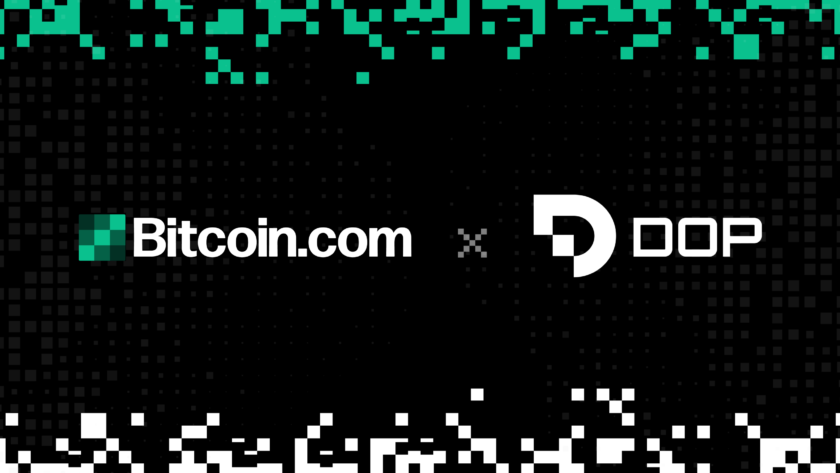Big data analytics is one of the greatest advancements in modern business and commerce. The ability to draw an unprecedented quality and quantity of insights from astronomical amounts of data and fine-tune business operations has proven to be a technological marvel in the modern economy. While big data is set to only get bigger, its pressing problems cannot be ignored.
Data analytics is a fairly new discipline that has grown exponentially and evolved over the past five years with the advent of computer technology, namely machine learning. With the mass adoption and usage of smartphones and internet globally, vast amounts of data can now be tracked and collected. Yet, the data collection and analytics industry is currently functioning on outdated models that are unsustainable and non-compliant with today’s regulatory demands.
As it stands, the industry is centralized in the hands of a few large data brokerages and data trading networks who don’t usually consider the user’s rights or consent. Having our data in the hands of a few large corporations means they can abuse their access to our information through their roles as collectors or custodians. This can be seen through several high profile leaks and hacks of large databases containing millions of people’s most intimate data.
Those in charge of centralized databases have not proved to be the most competent in computer security procedures to protect the data they have in their possession. The Equifax hack, for instance, resulted in hackers obtaining 145 million Americans’ Social Security numbers, birthdays, driver’s license numbers, addresses, tax identification numbers, driver’s license states and issuance dates, as well as some email addresses. Meanwhile, Singapore recently had its worst cyber attack in history, with hackers stealing the personal information of 1.5 million SingHealth patients.
These massive data breaches have caused legislators to closely examine how companies collect, use, and store data, resulting in new sweeping data regulations. The most far reaching and important of these being the GDPR(General Data Protection Regulation) recently implemented by the EU.
Major issues with the data industry in its current iteration
Data is now one of the most valuable resources for many companies across several leading industries. It has been called “the new oil” as data collection and analysis has revolutionized the way successful businesses create their profit models. However, having vast amounts of data is a double-edged sword, as bad data can be catastrophic to a data-driven business model. In fact, bad data can cost between 10–25% of a business’ revenue. The source of data and the way it is collected is essential to its quality. It has been said the way data is collected is as important as the data itself.
Let’s take a look at the effects bad data can have on businesses: (source: Integrate, Data Quality Index, 2015)
- 25% of the average database’s records are inaccurate
- 60% of those surveyed rate the overall health of their data as unreliable
- 80% of those surveyed say they have “risky” phone records
- A B2B quality index shows 40% of leads contain bad data
- Bad data costs the USalone, over $3 billion USD a year
How data is collected, sourced, and handled varies and is typically undocumented. To resolve this, data governance should meet two very important requirements: it must take into consideration the way the data is sourced and collected, and it must address and document any changes or manipulations made to the data for analysis purposes. There should be a data specific “chain of custody” that should be adhered to whenever someone analyzes, processes or collects data.
The blockchain is a decentralized, digital ledger that is used to record transactions occurring in a network, secured using cryptographic technology. Due to the immutable and cryptographically verified security of a blockchain network, it offers a way to remedy the issues currently present in the data industry.
Blockchain startups are meeting the demand to provide this solution
Due to the way the data market is structured as of now, it is ripe for disruption and blockchain is a logical way forward. The market always meets demand and recent blockchain startups have begun to tackle the issue head-on. A startup, SWIPECrypto (SWIPE), is building a blockchain-based data monetization platform, complete with a privacy and data sharing protocol and governance layers. It focuses on empowering user data privacy and building a data ecosystem where key stakeholders are adequately compensated for their efforts.
The core method SWIPE is using for data collection is its suite of software development kit (SDK) tools that can be integrated by mobile app developers to collect user data. SWIPE’S SDK also doubles as in-app marketing tools to help increase user engagement, usage, and retention, hence supporting data collection. All data collected through SWIPE is aggregated, anonymized and encrypted to protect user privacy but retain data buyers with the ability to audit and verify the provenance of the data through the blockchain. This SDK suite, with its data sharing protocol and decentralized data marketplace, forms the SWIPE network, where data providers and data purchasers can interact directly in an ecosystem without the data brokerages and data trading networks acting as 3rd party intermediaries with rent-seeking fees.
SWIPE already has market research industry leaders in the Asia region on board as SWIPE data monetization partners, including Performars (South Korea), GMO Research (Japan), Paneland (China), and Acorn Asia(Singapore and Hong Kong) , who are purchasing data collected in SWIPE network. The network also has a strong portfolio of major banks and FMCG brands as clients, such as DBS, Coca-Cola, Chanel, AXA, Aviva, Barclays Bank, Adidas, Tesco, and many more. The future goals of the SWIPE data infrastructure are to forge partnerships with other industry leaders to provide a next-generation blockchain platform that ensures data is collected in an ethical and responsible fashion that benefits all participants in the SWIPE blockchain infrastructure.
“Thanks to the collaboration with SWIPE, Performars will now be able to obtain fair and transparent data analysis and marketing insights from Southeast Asia”, said Richard Jo, Chief Customer Officer of Performars. “We want to ensure our efforts in analyzing marketing data for our clients, who wants to expand their business in Southeast Asia will be accurate and accountable.”
SWIPE’s use of blockchain will enable a better solution for data purchasers, providers, and users, cutting out the middleman and allowing participants to transact directly through the SWIPE platform with auditability, accountability, and transparency as core features.
Data breaches and privacy violations are not expected to stop if we continue to store and trade data using centralized service and platforms. Global opinion and regulations are demanding methods to safeguard and protect user privacy, and blockchain startups like SWIPE are actively taking a bold step towards securing the future of a fairer data ecosystem for all. SWIPE is attracting industry thought leaders and professionals to join their management and advisory team who are committed to solving this issue, including Rebecca Tan, the former Managing Director for the Nielson Company in Singapore.
“I specialised in digital and data analytics measurement during my 18-year stint as the Managing Director of SEA Media & Digital, Nielsen,” said Rebecca Tan, Strategy & Data Analytics Consultant for SWIPE. “As such, I fully understand the issues of the current model of data collection and need for greater transparency. SWIPE has developed concrete plans, with the help of blockchain technology, to resolve these data leak and privacy issues, and I am excited to be part of this team!”




